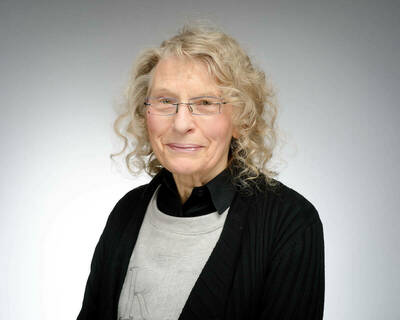 Janet Kourany
Janet Kourany
University of Notre Dame philosophy professor Janet Kourany, the 2023-24 Fulbright Canada Research Chair in Values and Science at the University of Calgary, is working on a book there this fall semester tentatively titled Bacon’s Promise.
Her book is about Renaissance philosopher Francis Bacon, a chief architect of modern science, and the promise that he and centuries of successors have made: Science, if supported by society, will improve the lot of humanity and make the world a better place.
Society has supported science, Kourany said, and science has improved humanity and made the world a better place. But she said it has also harmed the humanity it was supposed to help, and harmed some humans while helping others.
“In fact, many of the most pressing problems we face today, such as environmental pollution and global warming, racial, ethnic, and other sources of social unrest, the ever-present threat of cyberattacks, and much, much more are, I would suggest, at least partially of these sorts,” Kourany said.
Science has also largely ignored the needs of most people, said Kourany, an affiliate of the Reilly Center for Science, Technology, and Values and core faculty member in its history and philosophy of science program.
“Medical research, for example, has devoted more than 90% of its resources into problems that affect only 10% of the world’s population,” she said.
A big part of the problem has to do with values — corporate values, fundamentalist Christian values, right-wing political values, and racist and sexist values — that have shaped so much of science, said Kourany, who is also a concurrent professor of gender studies.
And while scientists, science journalists, policymakers, historians, and philosophers of science have, at times, critiqued these values, Kourany said they haven’t identified and provided an effective rationale for alternative ones.
So, the problem continues.
This issue of identifying science’s values is called the new demarcation problem, and it’s a central question in philosophy of science.
The original demarcation problem — how to distinguish legitimate from illegitimate science — has been one of the most important questions in philosophy of science for centuries.
The new demarcation problem is far more modest but proves to be just as challenging, Kourany said. It seeks to distinguish legitimate from illegitimate value influences in science.
Bacon’s legacy might prove especially helpful here, Kourany said, because he provided an enduring framework for science. The framework included a vision of the benefits that science would produce, the way they would be produced, and a timeline of achievement — given that the enterprise was supported.
Most importantly, she said, Bacon's framework incorporated central tenets of Renaissance humanism — the idea of self-reliance and civic virtue, and a belief in the uniqueness, dignity, and value of human life — as an ultimate moral justification.
It also points the way to a more promising political philosophy of science and rationale for the social benefits of science. And over time, Kourany said the framework been corrected, updated, and shorn of its theological elements.
And while his moral vision — his ethics of science — also has needed further refinement, she said, thus far it has not received the attention it deserves.
That’s what she seeks to accomplish in Bacon’s Promise.
Her Fulbright-supported research builds on her prior work, including the essay collection she co-edited, Science and the Production of Ignorance: When the Quest for Knowledge Is Thwarted; her monograph, Philosophy of Science after Feminism; and recent journal articles “Bacon’s Promise,” “The New Worries about Science,” and “The Present Plight of Science, and Our Plight,” which is forthcoming in Science and Humanism: Knowledge, Values, and the Common Good.
Kourany’s book research also builds on her regular courses, including Forbidden Knowledge, as well as Science and Social Values, and The Science-Gender Connection. In her classes, she and advanced science and philosophy students explore resonant and cutting-edge issues in science studies.
Kourany has been recognized for her excellence in the classroom twice in her Notre Dame career — she received the Gender Studies Program’s Marian Mullin Hancock Teaching Award and the University’s Kaneb Teaching Award (now the Joyce Award for Excellence in Undergraduate Teaching).
Philosophy can, and should, be of benefit during these extraordinary times, Kourany said.
“There’s still so much to be done,” she said. “And I want to help do it.”
Originally published by at al.nd.edu on November 14, 2023.